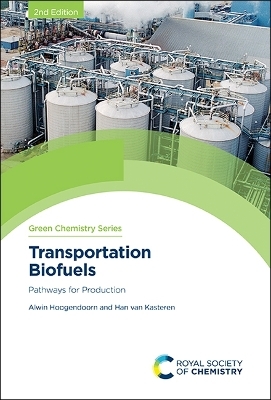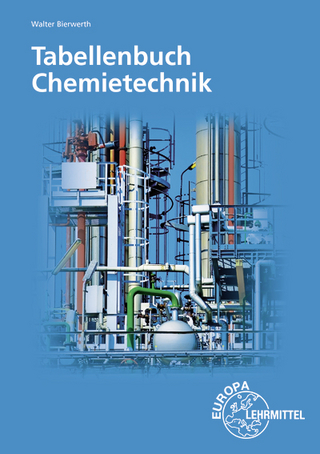
Transportation Biofuels
Royal Society of Chemistry (Verlag)
978-1-78801-504-2 (ISBN)
The transportation industry is still largely reliant on fossil fuels, whose use and extraction have significant environmental costs. Biofuels produced from renewable resources biomass offer a more sustainable alternative. However, it is important that production methods should be energy efficient and that feedstocks should not compete with food sources. Biofuels that meet these criteria are sometimes referred to as second-generation biofuels.
The new edition of this book provides updates on the three previously discussed non-conventional pathways for second-generation biofuels, including new experimental results and pilot plant studies. It also includes a completely new chapter looking at developments in combining renewable electricity with fuel production and possible future directions for the transportation industry.
It is a useful read for researchers and industrialists working in biofuel development as well as postgraduate students studying fuel alternatives.
Alwin Hoogendoorn is Portfolio research manager at the Centre of Expertise Biobased Economy of both Avans University of Applied Sciences and HZ University of Applied Sciences (www.coebbe.nl) and has been involved in bioenergy R&D and the actual realisation of bioenergy and biofuel plants over the last 20 years. Han van Kasteren is employed at Eindhoven University of Technology and the Centre of Expertise Biobased Economy, where he is a Professor for the research area Biobased Products. He specializes in the areas of energy and waste technologies including novel biofuel production processes, such as biodiesel and bio-ethanol, thermal treatment of (bio)wastes e.g. pyrolysis and gasification, and recycling processes for plastic containing waste streams. Alwin Hoogendoorn and Han van Kasteren both have experience in the areas of novel biofuel production processes and have been working on, enzymatic biodiesel processes, digestion processes, biological conversion of syngas into both ethanol and methane and, more recently, have become involved in electro fuels. Both authors can be considered to be pragmatic and hands-on: various research projects were executed and practical knowledge has been gained while using pilot scale test installations or demonstration plants.
Introduction;
Biological Conversion of Syngas into Ethanol;
Biological Conversion of Syngas into Methane;
Enzymatic Biodiesel;
Sustainability and Future Directions;
Concluding Remarks
| Erscheinungsdatum | 23.03.2020 |
|---|---|
| Reihe/Serie | Green Chemistry Series ; Volume 65 |
| Verlagsort | Cambridge |
| Sprache | englisch |
| Maße | 156 x 234 mm |
| Gewicht | 505 g |
| Themenwelt | Naturwissenschaften ► Chemie ► Technische Chemie |
| Technik ► Elektrotechnik / Energietechnik | |
| Technik ► Umwelttechnik / Biotechnologie | |
| ISBN-10 | 1-78801-504-5 / 1788015045 |
| ISBN-13 | 978-1-78801-504-2 / 9781788015042 |
| Zustand | Neuware |
| Informationen gemäß Produktsicherheitsverordnung (GPSR) | |
| Haben Sie eine Frage zum Produkt? |
aus dem Bereich


